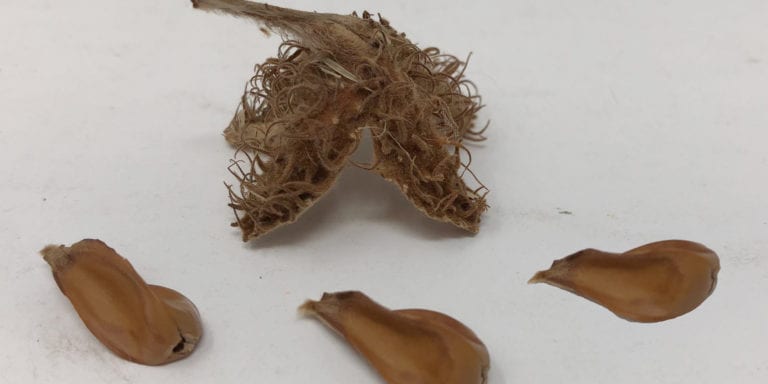
Our comments were down for the last few posts. We’ve resolved the issue, so you should be able to post your comments now (on this post and earlier posts.) Please contact us with any issues. We apologize for the inconvenience!
If you’ve missed them, read Part 1 & Part 2!
Chapter 11
It was only a few days after I’d returned from the West. I lay in bed sleepless in those hours that are no longer night but not yet morning. The orange eye of the woodstove glowed not 20 feet away. The forest always gave me plenty of dead wood. For at some time or another the old must make way for the new. My eyes sprang open and as happens so very often…as happens all the time…my first thought was of her.
And then for some reason my next thought was:
“The Drawer!”
When she had gone just two years before, her pictures and poems and mementos remained throughout the house where I’d displayed them for a long while.
Then, when seeing her everywhere around my home made me more sad than happy, I began putting all those little bits of her…of us…in a drawer.
I arose in the dark. I walked past the stove. The large water pan atop it softly hissed and gently roiled. It helps keep moisture in the air that the wood fire draws away. Like a thermal Doppler effect, the air got warmer as I approached the woodstove. As I passed the glowing orange eye, the heat was pronounced. The fire, banked for the night, was probably about 400 degrees. As I moved to the cupboard beneath the bookcases on the far wall, the air cooled.
I dropped to my knees before the middle set of drawers and pulled the second one open. I had brought the little battery operated reading light I keep beside my bed. I turned it on, and she looked up at me. Her eyes green this time. For part of her magic was how her eyes would change color for different moods and other reasons. My breath caught, and I felt as though my heart stopped for a moment.
Then my breath poured out. I shuddered. I put my hands into the oak drawer where I’d boxed away all the memories and mementos of her and us. I lifted and shifted not looking too close at anything lest I fall in and become even farther lost.
I wasn’t sure what I was looking for but then—there it was!
How had I forgotten until this dark cold hour in this dark cold night?
(You had not forgotten. It was hidden from you.)
The memories poured forth as I knelt like a supplicant before the “Us” archive. Our first trip had been to Western New York. We went to look at the Niagara Falls, a million books that a friend wanted me to buy, and the home where I’d been born and lived until I was 13.
We visited museums and historic sites as well.
One was the Frank Lloyd Wright Darwin Martin House. We’d each had big SLR cameras and must have taken a few hundred pictures each on that trip. At this house with the new eyes we had given one another, we saw beyond the brick and wood and stone of the structure. The lines and designs were there for all to see, but somehow our synergy and love opened perspectives far beyond what you would understand from a book about place.
We could see the builders and carvers, the glaziers and blacksmiths. We saw Wright and the homeowners bending over the plans on a worktable in the dining room.
We shot pictures from our knees, prone on the summer lawn, supine looking up at the lines of the soffits and rooflines. We’d take long views along the lines of the walls and walks. We’d focus in on details—the smallest things were so thought out by Wright to enhance the whole.
Then we backed away and found a bench in the yard below a tree and rested. She put her head on my shoulder, and we were one. A sum greater than the total of our two parts.
And all of art and nature seemed to know and became part of us as well.
I recall vividly looking up into the tree above. I saw a little dun object drop from some spot unseen about. It landed at our feet.
“A seed.”
“A nut.”
“A beech nut.”
“We should take it and plant it on our mountain.”
“Then part of this magic place would become part of that one.”
For we were like that then. Our thoughts fading, following and growing from each other’s last one. Thinking in unison. Speaking in tandem.
I picked the little bristly rosette husk up and gently let it fall into my top pocket.
Back home I’d put the seeds and husk in a baggie and set it upon a counter in the pantry. I planned to plant it in the spring…above the stone bench…for there were no…beeches…on the mountain then…?
Was that true? No beech was on the mountain then?
I…I don’t understand.
I shivered. The hair on the back of my neck rose.
And there it was beneath some photos. The small clear plastic bag with the beech nut husk in it.
I removed it and raised it and shone the light upon it.
Three small nuts and the husk fully splayed open like a simple brown wooden flower.
Beech nuts.
Three?
The husk has four “leaves” or petals. Each leaf provided a spot for one seed.
One seed was missing.
I took the little bag back to bed with me, turned off the light. I put my head on the pillow and looked out the window into the night. I tried to remember. It had been a golden day. Living, laughing, learning, creating. We had planned to plant a seed. We would have a bit of the Wright house on the mountain then. Each time we would see that beech tree growing on the mountain we would remember. We would have that day forever then.
The spring never came for us. The seeds were never planted.
There was something else…it nagged at my mind. But whatever it was would not come to me. The seeds were on a pillow. Her pillow. The lights out the valley far below twinkled. Merciful sleep must have taken me at some point for the next thing I saw was rosy dawn. The sky on the horizon was pink and dark orange. The sky above those colors was brightening blue. Soon, I knew, the sun would peek over that far horizon.
Morning.
Before the dawn, which was not far away, I went outside with the little bag of seeds. I strode up the slope and stood before the young tree. I tumbled the bag’s contents out into my hand. I stretched my hand out with my palm up. The three seeds and the little husk lay in the cupped flesh.
Silence.
A golden light moved on the ground past my feet.
It was the sun rising behind me. Its light was quickly passing me and moving up the mountain. It touched the ground where she, the Beech, stood and then moved up her smooth silver skin. And then she became golden in the morning light.
A nuthatch landed upon her and hopped up her straight smooth side. It churred its little song, and I felt the tree’s consciousness awake as if it had been very far away.
(I remembered.)
“Remembered what?”
(When you opened the drawer in the dark and withdrew—what you have in your hand—it woke me too. Memories I didn’t know I had came to me. I went to see…my…my…mother whom I did not know until you rediscovered those. I went to her in the night and asked what this all meant.)
“And…?”
(She did not know. At first she did not know me. But when she looked more closely upon me she said, ‘Daughter?.’ I told my mother of you and her and the seeds you’d found last night so many miles away from here. She said she remembered you. And her. And that day. Of all the thousands of people that pass by her and beneath her each year for so many years she recalled your visit. She recalled how you two looked at her in awe and respect. She felt you saw into her soul as humans are so rarely able to do. She recalled you bending and picking up that which you have in your hand. She had dropped it at your feet purposefully. She wanted you take them with her blessing. And, my mother said, ‘She bent too.’)
“She did! I remember now. We each picked one up. We were each going to plant them.”
I dropped to my knees and sobs poured forth. So much I had held inside for so long poured out of me. It hurt so much, but the purging of what had been pent up inside felt so good. The sun behind broke completely from the earth and into the sky. I felt its light and warmth upon my back.
“Where is she? Where?!”
(That I cannot see.)
Chapter 12
I put the Beech burr and seeds in a little plastic bag and pinned it to the corkboard above my desk where I couldn’t forget it again. My mind was a mix of confusion and relief and hope that all that had been lost might be found again. At least I had some answers to the mysteries that had nagged me—at least the mysteries I’d known about. And the hidden mysteries? I’d known there were things out there. I’d been able to sense there were things on another plane that somehow tied into my life but were always just sights I’d see out of the corner of my eye or something fleeting just beyond where my vision could focus on it.
Why hadn’t we each planted those seeds? They’d fallen from a magnificent tree in a magic place.
(What is missing?)
“What?”
(Something is missing.)
What could she mean? Why wouldn’t she just come out and tell me? I thought long and hard about it.
“Why can’t you tell me what is missing?”
(I can’t. Because I can’t see it. But I sense it. Another piece of the riddle, the mystery. It is out there just beyond what I can see. But I know it is an answer. A part of the mystery.)
“Three seeds. There were four. The missing beech seed!”
(No! I couldn’t be! I couldn’t be!)
She was upset! I’d never known her to anything less than composed. What had surprised her?
(Am I that seed?)
But it was never planted. I never planted it. And I’ve only had it just a few years.
(It was meant to be planted. I was meant to be brought to life.)
But who? How? And you’re more than a couple years old.
(That seed is gone. I am here. I am meant to be here. I was always meant to be here. Near you. Time is a funny thing. Maybe it is not a fixed thing. Some of us are thousands of years old.)
But you must have been here. On this mountain for 10 years or more.
(Did you ever see me in the years you’ve already passed here?)
“No. No… When I first saw you, it was as if you had just appeared. Trapped in the midst of those others. Some with hearts of black. All seeming to try to keep you from the light.”
(Was that the first time?)
Then something came back to me! When things were falling apart. When two souls intertwined so perfectly were unraveling. We, she and I, walked out one cold winter morning. It was not long before she was gone. I’d looked up the slope and saw what seemed like an apparition.
“Look! It’s a Ghost Tree.”
I had spoken those words to her. Those exact words. How had I forgotten until now?
She could see it too, she said.
Then so soon after she was gone. And my eyes could only search for what had gone wrong. I could not see so many things that had been so clear before.
When she left, some of my vision disappeared with her.
Chapter 13
I began to seek knowledge about the trees that were now tied into my life.
There must be some answers somewhere.
I studied about beech trees and their history.
Then an amazing thing came to me. The word “book” is descended from an ancient Germanic word for beech.
Books are my life. I’ve spent my life, decades, handling books; trying to save and find new homes for millions of books whose owners have passed into the mist or who have given them up for other reasons.
There had to be some kind of connection.
Books. Beeches. Books. Trees. Magic.
Chapter 14
It was winter again. The third winter she was gone. The third winter of despair and loneliness.
When I wasn’t down in the valley working with books, I was up on the mountain. I would spend my day walking in the woods. The forest floor was covered with dry brown leaves. Most of the life on the mountain was resting beneath that blanket. The only green in that season were the Mountain Laurels which hold their dark waxy green leaves all year round. At night, I would read or write.
My journals of the last few years were now a stack closing in on two feet high. Why? I don’t know. I have felt a need to record thoughts and events almost every day. A writing obsession. Maybe it keeps bad things at bay.
In winter the woodstove becomes a ritual and a discipline. I seemed to find more comfort in the heat made from my own labor than that from underground wires of electricity brought up from the valley. Almost all the wood I gathered was from dead falls. It was rare that I needed to cut live wood. When I did there was a reason. A tree had been damaged by wind or ice and had become unsafe. While cutting and moving and stacking wood, my mind often went into a Zen-like mode. I was focused on the task I was working on but at the same time part of my mind could enter a plane of peace and tranquility. I brought in wood to the barn year round. I kept an eye out for fallen trees and limbs. I would get my truck as close to that spot as possible and then cut and load the wood. I did leave plenty of snags and fallen trees for shelter and ultimate decomposition for that is part of the forest’s system of life. All kinds of flora and fauna can find protection in, on or under dead wood.
It was February. That hardest month when winter had settled in and held its bitter vice like grip so tight.
I was bundled from head to toe. The headphone like mufflers over my ears softened the roar of the chain saw to a soft “putt-putt-puttt…” I was cutting on the slope below the house—the eastern side. It was a gentle slope all the way down to my property’s edge where it suddenly drops off steeply. It is a cliff and a spring wells out of the mountainside and fills a pond far below.
(East,) she spoke.
I paused and took a deep breath. I raised my head and looked out to the north and east. Far, far out on the horizon I saw light. Was it a reflection? A beacon? The sun was setting beyond the mountaintop above me. Maybe its oblique rays were flashing off something. But it was so far away. I had looked to the east hundreds of times in all seasons and at all times of the day, and I’d never seen anything like that before.
Its light glowed above the earth. Kind of like a lighthouse. But the ocean was many, many miles away.
I knew the geography out here pretty well. I knew which town and village followed which. I thought of a straight line between me and the light. Woodsboro was the closest. Beyond that would be Westminster. Then up into Pennsylvania and New Jersey…and then…Manhattan.
It reminded me there was a book fair coming up soon in Manhattan. Greenwich Village. They’d held that same fair for two score years. I’d only gone once before. I certainly didn’t need more books. I attended fairs now only to get away and maybe to learn something and maybe to meet and talk with fellow book lovers.
Something was tugging me to go to this fair this time. It was being held next week.
I recalled it was held in an ancient elementary school. Part of the fair was in the school cafeteria where thousands of children over many decades have had their homemade sandwiches and little boxes of milk at tables scaled down for the students’ diminutiveness. The rest of the fair was in the adjacent auditorium. Some of the booths are on the stage which was also designed for humans who were about half the size of the full grown versions. The school was called the Charrette* School.
* Charrette can mean: a concerted effort to solve a problem or period of intense work, typically undertaken in order to complete a project … or solve a mystery?
The building was nearly 115 years old.
It was evocative to think of all the spelling bees and pageants and graduations that had taken place there. Generations of children, parents and teachers had passed through the big wooden double doors.
One weekend a year it was filled with old or collectible books. Some beautiful. Some rare.
I decided: “I don’t know why, but I should go.”
(You should go.)
When I’d finished my work outside, I went inside, opened the dampers on the stove and put a couple big splits of oak from a tree an ice storm had took down. Two years ago. About the time when everything was falling apart.
When I’d changed into comfortable clothes, I checked the list of exhibitors online. I saw that a few friends would be showing their wares. Maybe one would have dinner with me after.
Regardless, I love the City. In small doses. Energy seems to rise from the earth on that little island.
I made reservations for Friday and Saturday of that weekend at a little old boutiquey hotel which had once been artist lofts and where writers like Fitzgerald and Steinbeck and Thomas Mann once stayed when it was a “residential hotel.” It was called the Renwick now.
Chapter 15
Getting away on Friday meant getting things done in a hurry. I packed very light. Lonely guy for two nights. In the little roller bag 2 shirts, 2 pants, 3 socks, 2 pairs of shoes (in case one gets wet.) The weather forecast predicted snow on Saturday so I grabbed a wool coat then tossed a little umbrella in my bag. My medicine kit—razor, toothbrush and paste, pills… I put my current journal and laptop and yellow legal pad (for verses) as well as charging wires into my old leather shoulder bag.
As I began to roll down the mountain, I looked in the rearview mirror. The Beech’s reflection was centered upon it. She was losing some of her tan dry leaves in the winter. I suppose they were making way for the buds that will swell and burst forth in the spring. The leaves were fluttering as if waving farewell. I raised my right hand and waved goodbye.
At work, I rushed through my duties and tried to make sure there was plenty for every one to do while I was away.
Then I headed North up US-15 toward the Mason Dixon Line. In an hour, I headed east on I-81. Then I-78 took me through New Jersey and into the Holland Tunnel, under the Hudson River and up onto the rock island of Manhattan. The drive took four hours.
Then my phone gave me directions I knew were wrong, but I followed them anyway—into gridlock. The city had loosened its reins in recent years and now chaos often reigned in rush hours. Cars entered intersections, and when the light changed, they were stuck. Cars trying to cross the road perpendicular were blocked. Horns blared. Hands gripped steering wheels tighter and nerves began to fray. It took a stressful hour to get the two miles the Renwick. I performed a couple illegal maneuvers to accomplish it—squeezing through partially blocked intersections on red lights. But I was there. Frazzled. I checked in and was lifted the 15 stories to my room. There was a terrace, and I went out and looked over the skyline. The room faced south, and there just off to the right the Empire State Building towered above all the others. As a child, when it was the tallest building in the world, there were legends about it. If you dropped a penny from the top and it landed on a person, it would pass through their body to the street. Death by cents. Tonight it was lovely, lonely, silhouetted by the sun falling in the west.
I needed a drink and rode the elevator back down to earth. The bar was called the Bedford. The original name for the building.
I ordered a Negroni up and dry. My hand shivered a bit as I raised it to my lips. The red potion flowed through me as I warmed and calmed. I thought of Fitzgerald and Steinbeck and the others writing and living on the floors above me.
I was now hungry and wanted fresh air. So I walked around mid town that night, ate a wedge salad at The Palm and then had Hofbrau Dunkel on tap and Cervalat Wurst at the rollicking Bierhaus.
It was late. I was tired. I made my way back to the Renwick.
I slept well and hard. In the morning, I wrote in my journal between the planes of the cool crisp cotton sheets atop the enormous bed.


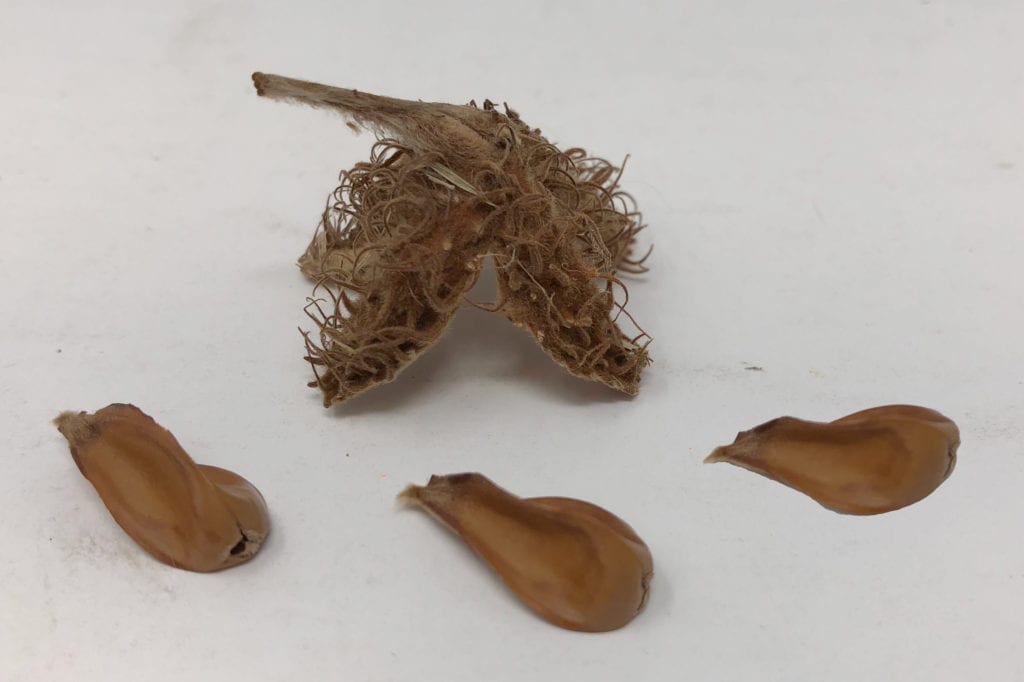
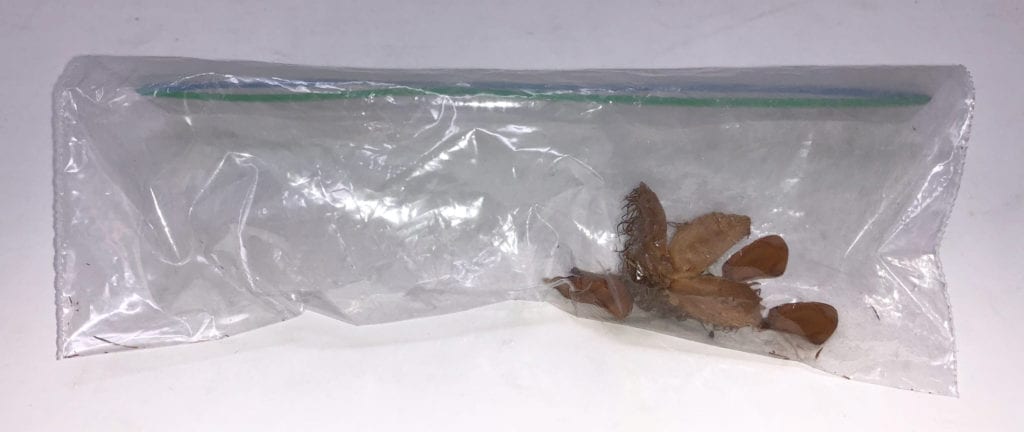
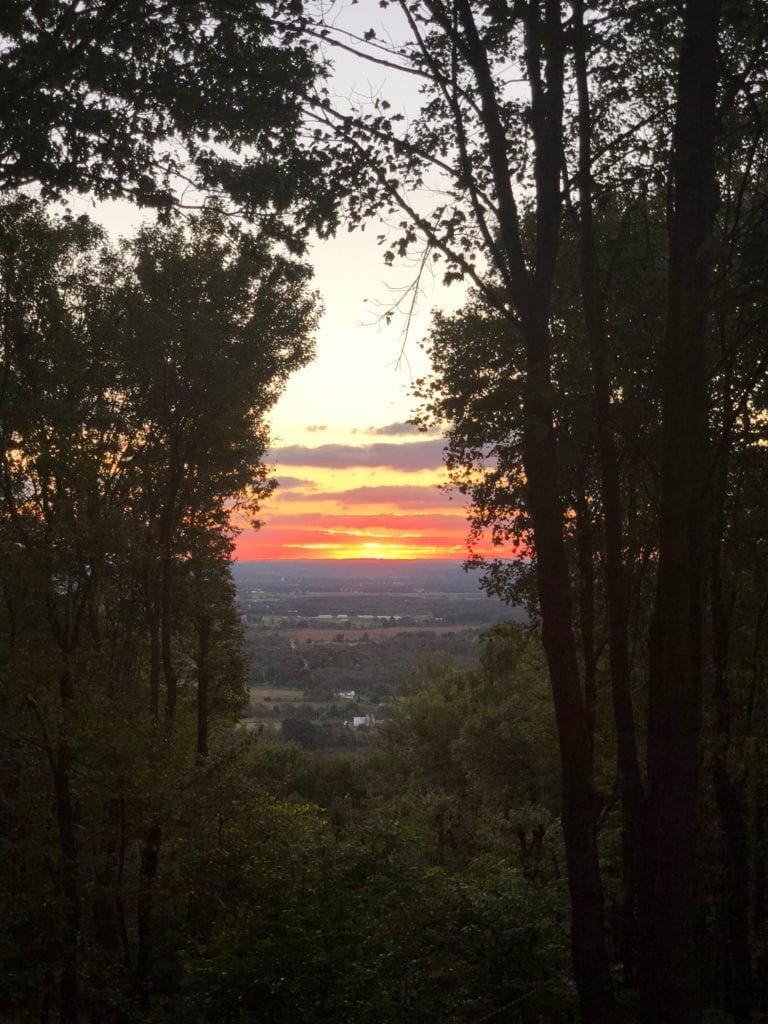
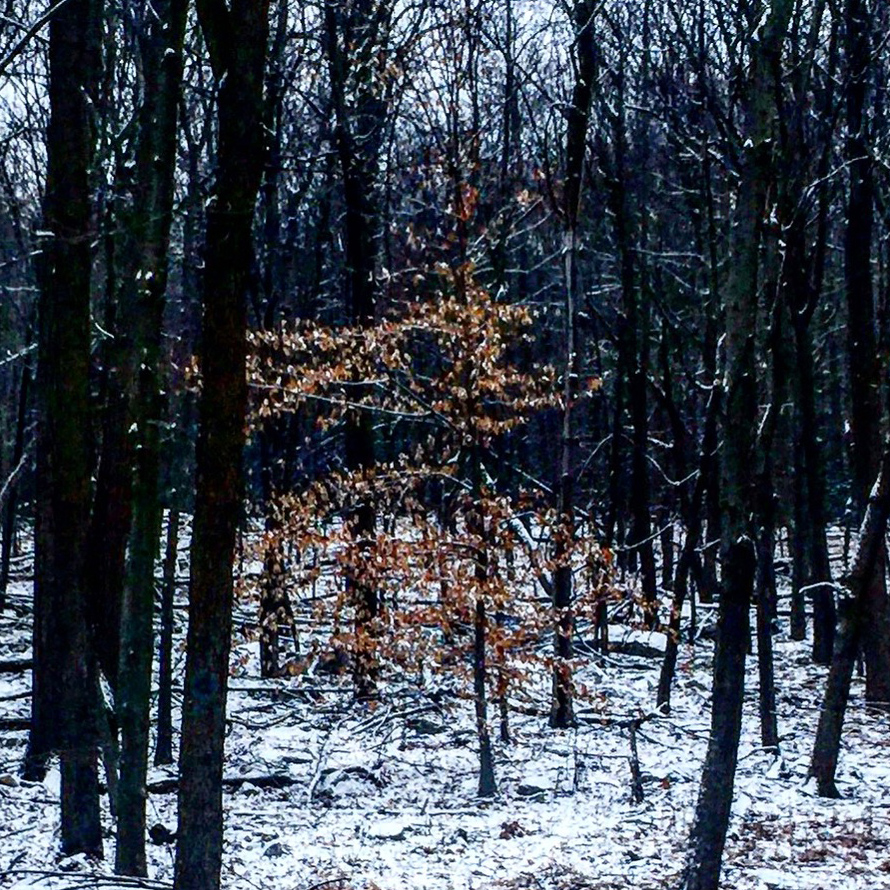
There are no comments to display.